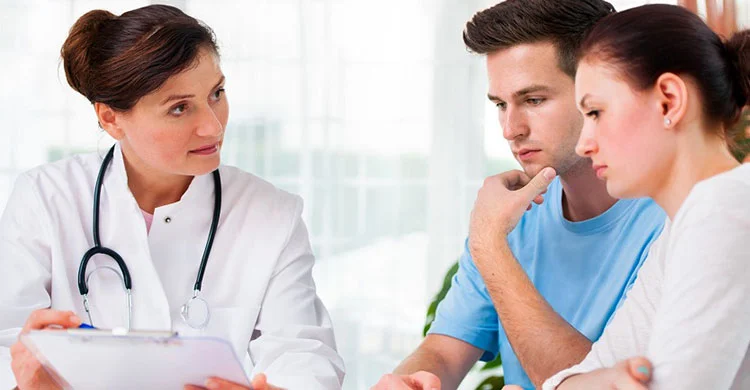Understanding IVF Timeline: How Many Days After Your Period Does IVF Start?

The journey to parenthood through In Vitro Fertilization (IVF) is a carefully orchestrated process, and a common question for anyone considering treatment is, "How does it align with my menstrual cycle?" The short answer is that the IVF timeline is intrinsically linked to your period, with the treatment typically beginning within the first few days of your cycle.
IVF Cycle Explained: When Does Treatment Begin After Menstruation?
An IVF cycle is generally divided into several phases, and the start date is determined by the first day of your period, known as Day 1 of the cycle.
-
Ovarian Stimulation (Days 2-5): This is the first active phase of treatment. On the second or third day of your period, you will begin taking fertility medications. These injectable hormones are designed to stimulate your ovaries to produce multiple eggs, rather than the single egg that is released in a natural cycle. This phase usually lasts for about 8 to 14 days, with regular monitoring through ultrasounds and blood tests at a trusted fertility clinic in jaipur.
-
Egg Retrieval: Once your follicles have reached an optimal size (typically after 8-14 days of stimulation), your doctor will schedule the egg retrieval procedure. This is a minor surgical procedure performed under sedation, where the eggs are collected from the ovaries. This usually occurs around Day 12 to 16 of your cycle.
-
Fertilization and Embryo Development: After retrieval, the eggs are fertilized with sperm in a laboratory. The resulting embryos are then monitored for several days as they develop.
-
Embryo Transfer: The embryo transfer is a procedure where the selected embryo(s) are placed into the uterus. This typically happens 3 to 5 days after egg retrieval.
So, while the entire process from start to finish can take several weeks, the initiation of the IVF cycle, and the key medications, starts within the first few days of your menstrual period.
From Period to IVF: The Step-by-Step Timeline You Should Know
Here is a simplified, step-by-step timeline to help you visualize the process:
-
Day 1 (of Period): The first day of full-flow bleeding. You will call your clinic to schedule your initial appointment.
-
Day 2 or 3: You will have a baseline ultrasound and blood work to confirm you are ready to start. If everything looks good, you will begin your stimulation medications.
-
Days 4-10: You will continue taking medications and visiting the clinic for monitoring appointments every one to three days.
-
Days 11-14: Your doctor will schedule your egg retrieval once the follicles are mature. This happens roughly 12-16 days after the start of your period.
-
Days 14-19: Fertilization occurs, and the embryos are monitored.
-
Day 19-21: The embryo transfer takes place. This is approximately 20-22 days after the start of your period.
Understanding this timeline is crucial for managing your expectations and preparing for your cycle. Whether you're seeking a Fertility Clinic in Jaipur or elsewhere, a clear timeline is the foundation of a successful treatment plan.
How Soon After Your Period Can You Begin IVF Treatment?
You can begin IVF treatment as soon as the second or third day of your period. This is because the stimulation phase of the IVF cycle is designed to mimic and enhance the natural follicular development that begins early in the menstrual cycle. By starting treatment in these initial days, fertility specialists can effectively control the process and optimize the growth of multiple follicles, maximizing the number of eggs that can be retrieved and, ultimately, improving your chances of a successful pregnancy.
When to Start IVF After Menstruation: A Complete Guide for Couples
For couples planning IVF, understanding the timing is essential. After menstruation, the fertility team evaluates the patient’s baseline hormone levels, including FSH, LH, and estradiol. Once everything is normal, ovarian stimulation begins, typically within the first few days after the period.
Ovarian stimulation involves daily hormone injections for about 8–12 days, depending on the patient’s response. This phase encourages the ovaries to produce multiple mature eggs, which are then monitored through ultrasounds and blood tests. Knowing when to start helps couples prepare mentally, physically, and logistically for the IVF journey, reducing stress and maximizing outcomes.
How Many Days After Period Does IVF Stimulation Begin?
IVF stimulation usually begins 2 to 5 days after the start of menstruation, during the early follicular phase. Some fertility clinics may adjust the timing slightly based on individual factors such as age, ovarian reserve, or previous IVF responses.
Once stimulation starts, careful monitoring ensures that the eggs mature properly. After sufficient development, the eggs are retrieved, fertilized in the lab, and embryos are cultured before transfer. Adhering to the precise timing of the menstrual cycle and stimulation schedule is critical for improving IVF success rates.
By understanding this timeline, couples can plan better and enter the IVF process with confidence. Consultation with a fertility specialist at a trusted clinic like Ritu IVF ensures a personalized approach, taking into account each patient’s unique cycle and fertility needs.
Conclusion
Understanding the IVF timeline and knowing how many days after your period IVF stimulation begins is crucial for a successful fertility journey. Typically, stimulation starts 2–5 days after menstruation, during the early follicular phase, ensuring optimal ovarian response and higher chances of success. Consulting an experienced fertility specialist can help tailor the treatment to your unique cycle, making the IVF process smoother, well-timed, and more effective. Proper planning, guidance, and monitoring are key to turning the dream of parenthood into reality.
- AI
- Vitamins
- Health
- Admin/office jobs
- News
- Art
- Causes
- Crafts
- Dance
- Drinks
- Film
- Fitness
- Food
- Jogos
- Gardening
- Health
- Início
- Literature
- Music
- Networking
- Outro
- Party
- Religion
- Shopping
- Sports
- Theater
- Wellness


